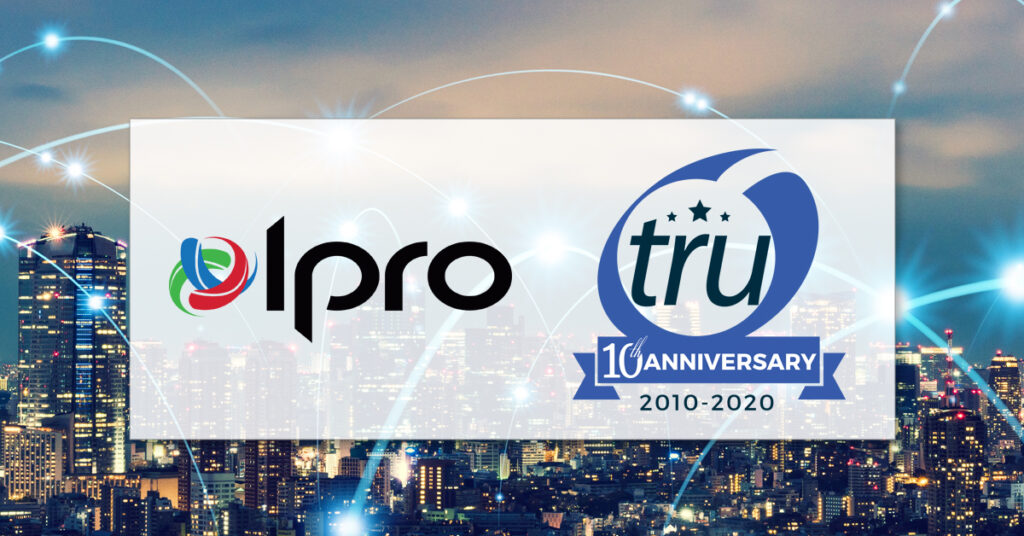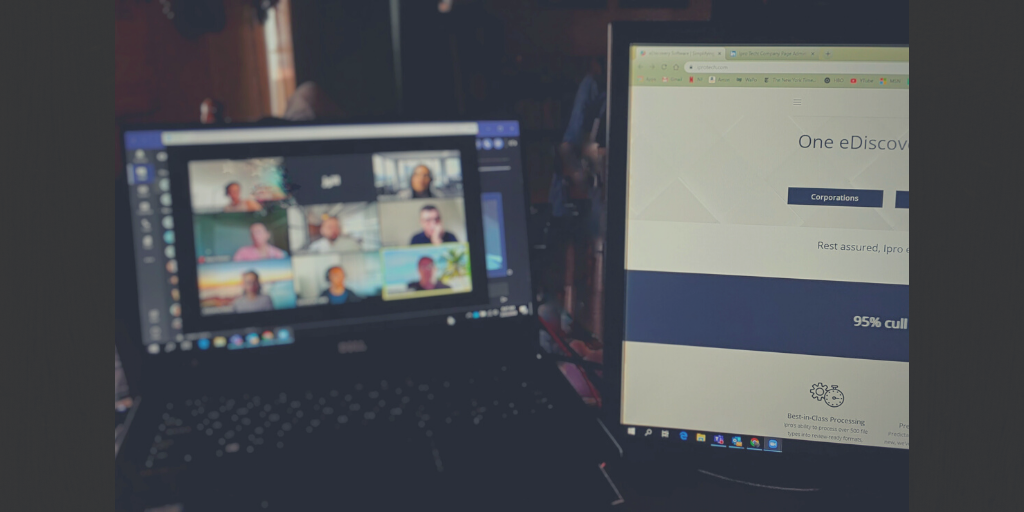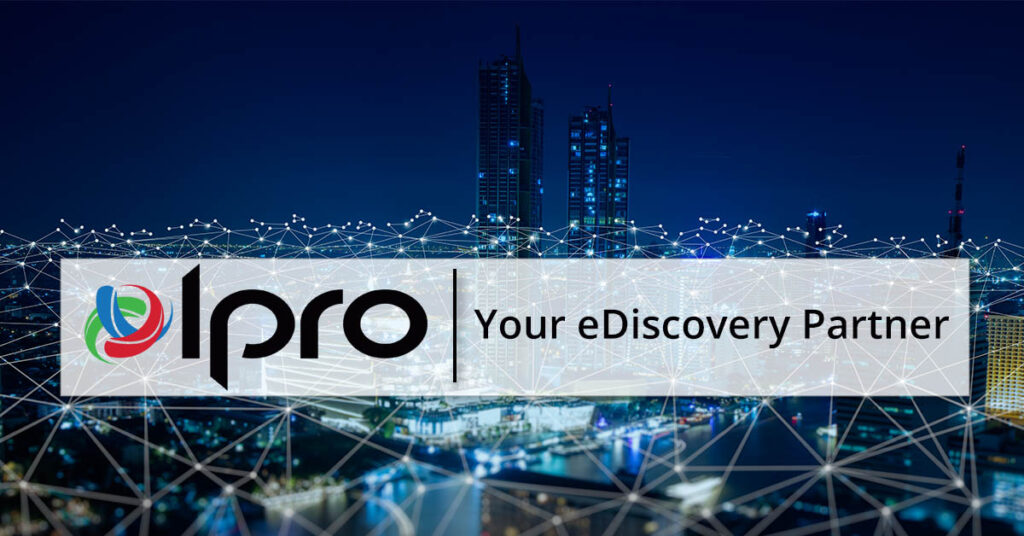*Editor’s Note: Over the past few weeks, as the eDiscovery industry was shifting to the new normal of remote work and shelter-in-place policies, Ipro’s Senior VP of Strategy, Ryan Joyce, set out to talk with and survey clients and others in the industry from around the world to hear their story and get a pulse on where things stand and where they seem to be heading. This is the result of his research.
The Current Pulse of the eDiscovery Industry
Written by Ryan Joyce, Senior VP of Strategy, Ipro
First, I created a short interview with 7 questions and sent them to corporate legal teams, law firms, and legal service providers in the United States, Canada, the UK, and Australia. The first question is about how they, their family, and their region were doing overall. The remaining 6 questions are about their company: if they are working from home, if they are busy and still getting new matters, and what their expectations are for the industry in 2 months, as well as for when things get back to “normal.”
Below are the 7 questions with my wrap-up summary for each. I’ve also included a few statements from some of the people I spoke to, with their names and company information removed for privacy.
Outside of work, what’s going on in your geographical area?
There is a very similar story emerging everywhere. Everyone is either social distancing on their own or being mandated by their local or federal governments. They are also getting used to the “new normal” of working from home, at home schooling for those with kids, and doing a dozen or more Zoom meetings per day. Streets are empty across the globe for the most part as everyone tries to stay safe and healthy (some countries and states are starting to hand out tickets and fines upwards of $1,000 or more for failing to do so).
Is everyone working from home?
At this point, the unanimous answer is yes. With that said, some organizations still have a few folks going into the office and some handled the process much better than others. Managed Document Review Centers and on-site collections have mostly gone remote as well.
Is your organization still busy?
Across the board, the answer is yes, everyone is still busy, and in some cases, even busier than usual. Document Review has spiked because attorneys now have the time with other operations currently on hold.
Are cases going on & are new ones starting?
Everyone is still working on a lot of projects, along with cases from Q4 and early Q1. And everyone is still receiving new matters, but the rate has slowed depending on the practice area. Some companies are already starting to see an uptick in the areas of Health Care, Bankruptcy, Corporate, Contracts, Force Majeure, COVID 19 Task Forces, and others.
Are cases still being heard in the courts?
At this point, the unanimous answer is No (or not really), at least for Civil cases. Criminal cases must still be heard due to a defendant’s right to a speedy trial. Depending on the country (or state), E-Courtroom Technology may be more available in some areas, and the Supreme Court of the US, as well as the Supreme Courts of Michigan and Florida, are beginning to hear virtual oral arguments. In an announcement on April 13, the nation’s highest court will open a live audio feed for the first time as it hears arguments in ten sets of cases.
What do you expect to see in the eDiscovery & Litigation Support arena 2 months from now?
Everyone I spoke with sees a slowdown over the next months. However, depending on the Practice Group, some could get very busy in the same time frame. Below are a few of the quotes from my conversations:
- Things will continue to get worse; infection rates will continue to go up, people will have a harder time working, things will slow down. And if the courts continue to stay closed, then things will really slow down – we need to weather the storm and keep the ball moving and be resilient — Global Director of Forensics in UK (Top Global Service Provider)
- Things will slow down, but it’s unclear for how long — Client Services Director in Los Angeles, CA (Top Global Service Provider)
- We’re expecting a huge slow down if everything stays the same, because almost no new matters will be filled for construction — Director of eDiscovery in Houston, TX (Large Construction Litigation Law Firm)
- There is a freeze on hiring until this is over. Cases will slow down on litigation trials until courts open back up. However, with our Bankruptcy and COVID 19 task force, we will stay busy — eDiscovery Services Manager NYC, NY (Am Law 50, Global Law Firm)
- Hoping there will be growth in solvency restructuring, because that is our business, but expecting about 3 months of hardship at least — Partner Brisbane, Australia (Large Forensics & Cyber Security Accounting Firm)
- No doubt things will slow down, because clients will slow down. The question for law firms will be, how do we use employees for billable hours, who aren’t normally working in those roles? The firms that can adjust, look at any avenue, move people here and there, those are the ones who will survive – Litigation Support Director, East Coast (Am Law 200, Law Firm)
When the dust settles and things get back to “normal,” what do you expect to see in the eDiscovery & Litigation Support arena (maybe 3 – 4 months from now)?
This one had mixed results. Some say there will be a lot of settling due to bankruptcy and poor Q1/Q2 profits, and others say it will be like the starting line at the Olympics for a 100-meter dash. Below are a few of the quotes from my conversations:
- Most of our clients are oil and gas, especially on the West Coast in Canada. Those markets are getting hit hard right now, so I expect a lot of litigation and movement in these sectors soon, provided they make it through this and don’t go under — Litigation Support Director in Calgary, Canada (Top 5 National Law Firm)
- When this is all done and dusted, it’s going to be like the starting line at the Olympics for a 100-meter dash. Not just with cases that have been deferred, but also over the next 12 – 24 months, much the same as what happened after the 2008 financial crisis: everyone and will want to litigate — Global Director of Forensics in UK (Top Global Service Provider)
- A lot depends on what happens with the bailouts. There could be a lot of litigation from that. Right now, the Department of Health is busy, but as soon as they get their head above water, they will come knocking on all the Health Care Organizations out there who messed up or had someone die from COVID 19. This is going to change the way law is practiced, as well as the way lawyers litigate. We will also see a move to cyber courts — eDiscovery & information Governance Counsel in San Francisco, CA (Large west Coast Law Firm)
- There will be a huge spike in depositions and court cases, with tons of new litigation coming out of this. It will get busier than ever — President of Data Services in Phoenix, AZ (Large Managed Document Review Provider)
- If the economy doesn’t recover, there may be the tidal wave and bankruptcy. For the next 6 months to 1 year from now, corporations will have no budgets, so they will put off litigation, acquisitions, and mergers. There may be plenty of work but no one to pay the bills. But by the end of this year, it will get crazy busy — Director of Client Services in Los Angeles, CA (Top Global Service Provider)
- After the delay, the firm predicts it will be ridiculously busy. There will be a lot of Force Majeure in construction as well — Director of eDiscovery in Houston, TX (Large Construction Litigation Law Firm)
- I envision that some corporate clients will scale back due to Q1 & Q2 profits. There will be more settling, especially in aviation. SEC, DOJ, DOH will continue their work in 2020, but in 2021 everything will start to pick up again — eDiscovery Services Manager NYC (Am Law 50 Global Law Firm)
- As an industry, we are well placed. We will benefit from the fraud, the bankruptcies, the regulation work, and the overall litigation — Partner Brisbane, Australia (Large Forensics & Cyber Security Accounting Firm)
- We may never get back to normal. There will be a different dynamic with the way companies work, with a lot more firms working from home going forward – Litigation Support East Coast (Am Law 200 Law Firm)
- None of us know, so I’m going to be optimistic – based on previous years, like with the 2008 financial crisis, there will be a huge amount of employment law due to furloughs and layoffs and terminations. Vendors will continue to fight like they always do, but the law firm market will face bigger challenges and may not be able to pay their bills — EVP in Los Angeles, CA (eDiscovery Service Provider)
Some Additional Thoughts Gathered Over the Last 2 Weeks:
- Many firms are stopping partner distributions and cutting associate (and other employee) pay anywhere from 10%-50%
- Multiple Service Providers and eDiscovery Software companies have had layoffs attributed to COVID market conditions
- Hiring freezes are everywhere (unless you’re Amazon)
- Some of the smaller “very transactional” Service Providers are struggling as work has slowed
- CAP-X spends are frozen everywhere until this is over (even if it was in the budget before, it may be pushed until things level out)
- It is becoming widely viewed that the law firms who will survive this will be the ones who reinvent themselves and adapt the best, who make best use of all their employees for billable hours, are able to reassign labor to different areas that have the need and look at every avenue to make money and keep their clients (I believe this concept also applies for other organizations besides law firms).
Even with things currently beginning to slow, Corporations, Law Firms, and Government Agencies must prepare now for the avalanche of litigation, bankruptcy, employment disputes, sanctions, and government requests that will be coming their way in 2 to 6 months. If they wait until then, it will be too late. Which is why they need to get involved with a technology partner now, who can consult and guide them through these times and set them up for success coming out of this thing.
After 31 years in the legal technology industry, Ipro has weathered many storms, and we’re ready to partner with you to do the same now.
For more about how we can help your team prepare for what lies ahead, feel free to contact me.
NOTE – In doing these interviews, I was thanked by numerous people I spoke to for doing this, who also suggested I try do one of every few weeks, if possible, to continue keeping a pulse on our market, which we will look at doing. I would like to thank everyone I spoke with again for their time, and I hope everyone out there is staying safe and healthy.












